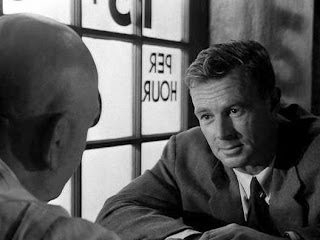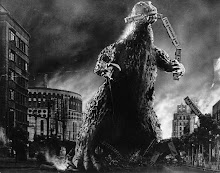
Memories of Murder (2003)
[http://www.imdb.com/title/tt0353969/]
The Gist:
Logically, I know there are flaws with this film. At times it becomes unbalanced with its stylized feel, it gives in to a few genre cliches, and the point of view oddly rests more with the stereotypical cop who won't listen to the new cop on transfer, is lazy with his investigation, tries to coerce confessions, and rejects every logical connection the new man makes between the crime details and the serial killer's MO. This last point would be alright if we saw a gradual change in our protagonist's point of view, but instead that comes on swiftly, as if changing gears (at least it does happen). After saying all that, I must say that Memories of Murder is one of the most affecting films I have seen in a long time. There was a point in the film where the killer was stalking a victim and I literally had to turn the movie off, walk around for a couple minutes, and turn it back on...and I still jumped in the scene, saying "Fuck!" out loud to no one. This is Bong Joon-ho's second feature film, and the third film I've watched of his. He's on my directors to watch list, easy. The film is so brilliantly crafted, so fascinatingly stylized (it usually works to its benefit), and so quietly disturbing that I easily forgave its lesser qualities.















